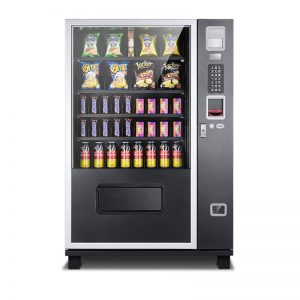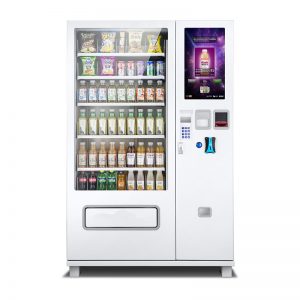🏭 Inside a Modern Vending Machine Factory
A vending machine factory is not just an assembly workshop—it is the hub where innovation, engineering, and strict quality control come together. For international buyers, especially those sourcing wholesale orders, understanding the way a vending machine manufacturer operates is crucial. From the first design sketch to the final shipment, every stage reflects the factory’s professionalism and reliability.
🔧 Step 1: Design and Engineering
Every vending machine starts as a design concept. Engineers and designers work with clients to outline the layout, capacity, and functionality. For example, a buyer may want a soda vending machine with extra space for bottles or a snack vending machine with adjustable trays.
Factories also integrate advanced features at this stage: touchscreen displays, smart inventory tracking, or multi-payment systems. This design phase ensures that the final product is not only functional but also aligned with the buyer’s brand and market needs.
🛠️ Step 2: Material Selection and Component Sourcing
The quality of a vending machine is directly tied to its materials and parts. A professional vending machine factory carefully selects sheet metal for durability, cooling units for stable temperature, and electronic components for efficiency.
Factories source from trusted suppliers to ensure consistency and reduce breakdown risks. For custom vending machines, special coatings, LED lighting, or energy-saving modules may be requested. Reliable sourcing builds the foundation for machines that can last years in high-traffic environments.
⚙️ Step 3: Assembly and Production Lines
Once materials arrive, production begins. Skilled technicians and automated machinery work together to assemble vending machine frames, install refrigeration systems, and configure payment devices.
A large vending machine manufacturer often organizes production into assembly lines, each dedicated to a specific part of the process. This structured workflow improves efficiency and allows the factory to meet wholesale demand while maintaining strict quality standards. For buyers, this means consistent machines across bulk orders.
✅ Step 4: Quality Control and Testing
Quality control is the backbone of any vending machine supplier. Factories establish multiple checkpoints where machines are inspected and tested. These include:
-
Electrical safety tests to ensure wiring and circuits meet standards.
-
Refrigeration checks for cooling and temperature stability.
-
Payment system tests covering coins, cards, and mobile transactions.
-
Durability trials where machines operate continuously to simulate heavy use.
In addition, factories often follow global certification systems such as CE (Europe), UL (USA), or ISO standards. These certifications demonstrate that the vending machine factory complies with international safety and performance requirements.
📦 Step 5: Packaging and Logistics Preparation
After passing all quality checks, vending machines are prepared for shipment. This step is critical for international buyers because improper packaging can lead to damage in transit.
Factories typically use reinforced crates, protective foam, and moisture-resistant covers. They also provide export documentation, customs declarations, and container loading support. By choosing a vending machine manufacturer with export experience, buyers reduce the risk of shipping delays and ensure safe delivery.
🌍 Why Quality Standards Matter for Buyers
For businesses planning to invest in vending machines, working with a factory that enforces strict standards brings long-term value. Certified machines reduce maintenance costs, lower downtime, and build trust with end-users. Customers are more likely to purchase from a vending machine that looks professional, operates smoothly, and accepts modern payment methods.
In contrast, sourcing from an uncertified or low-standard supplier can result in frequent breakdowns, costly repairs, and reputational damage. That is why experienced buyers always ask about certifications, quality assurance processes, and warranty policies.
📊 The Advantage of Factory Transparency
One of the strongest signals of a reliable vending machine factory is transparency. Buyers should be able to visit production sites, review testing protocols, or request sample machines before wholesale orders. Transparent manufacturers provide detailed specifications, clear lead times, and honest pricing without hidden costs.
This transparency builds confidence and creates long-term partnerships rather than one-time transactions.
✅ Final Thoughts
A vending machine is more than just a machine—it is a business investment that operates around the clock. Choosing a manufacturer with strong production capabilities and strict quality control ensures that investment pays off. From design and material sourcing to assembly, testing, and shipping, each step reflects the reliability of the vending machine factory.
For wholesale buyers, partnering with a trusted manufacturer or supplier means factory direct pricing, certified machines, and dependable after-sales support. By prioritizing quality standards, businesses secure vending machines that not only serve customers but also strengthen their reputation in competitive markets.








